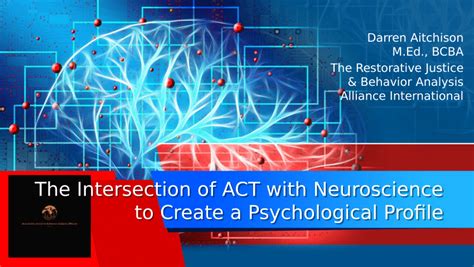Breaking News


Popular News


Explore the interplay between psychological processes and brain activity, along with the impact of neurological disorders on cognitive functions.In recent years, the fields of psychology and neuroscience have increasingly converged, illuminating the intricate connections between our mental processes and the biological underpinnings of the brain. This interdisciplinary approach not only enhances our understanding of psychological phenomena but also reveals the profound impact of brain activity on cognitive functions. As we delve into the nuances of psychological processes, we uncover how thoughts, emotions, and behaviors are deeply intertwined with neural mechanisms. Furthermore, the exploration of neurological disorders sheds light on the challenges that arise when these systems become disrupted, offering insights into treatment and rehabilitation. Join us as we navigate this fascinating intersection, where the complexities of the mind meet the marvels of the brain, offering a richer understanding of human experience.
Contents
The human mind is an intricate landscape of thoughts, emotions, and experiences, all of which are shaped by various psychological processes. Understanding these processes is crucial for unraveling the complexities of how we behave, feel, and think. Psychological processes include cognition, perception, emotion, motivation, and personality, each playing a distinct role in shaping our daily lives.
At the heart of psychological processes is cognition, which refers to mental activities such as thinking, learning, and memory. These processes enable individuals to interpret information and solve problems. For instance, our ability to remember past events or recall information for a test is heavily reliant on cognitive functioning. Factors such as attention and perception also influence how accurately we understand our surroundings.
Moreover, emotion plays a significant role in our psychological landscape. Emotions affect our decision-making, relationships, and overall mental health. Understanding how emotions interact with cognitive processes can provide valuable insights into mood disorders and anxiety, which are often rooted in these complex relationships. By delving deeper into psychological processes, we gain a clearer understanding of human behavior and the underlying mechanisms that drive it.
The relationship between brain activity and cognitive functions is a fascinating area of study that brings together psychology and neuroscience. Cognitive functions include a range of mental processes such as perception, attention, memory, and reasoning. Understanding how these functions occur at the level of brain activity is crucial for comprehending human behavior and mental processes.
Recent advancements in neuroimaging techniques, such as fMRI (functional Magnetic Resonance Imaging) and EEG (Electroencephalography), have allowed researchers to observe the brain in action. By analyzing areas of the brain that are activated during specific cognitive tasks, scientists can map cognitive functions to particular brain regions. For example, the prefrontal cortex is often associated with complex decision-making and executive functions, while the hippocampus plays a crucial role in learning and memory.
Furthermore, the brain does not work in isolation. Neural networks communicate with each other to facilitate various cognitive processes. This interconnectedness underscores the complexity of cognitive functions, suggesting that disruptions in one area can impact others. Understanding these intricate relationships can help inform treatments for cognitive i
Neurological disorders are conditions that affect the brain, spinal cord, and nerves
What is the main focus of the blog post?
The blog post explores the relationship between psychology and neuroscience, highlighting how these two fields intersect and contribute to our understanding of the mind and behavior.
How do psychology and neuroscience complement each other?
Psychology provides insights into behavior and mental processes, while neuroscience explains the biological mechanisms behind these processes, allowing for a more comprehensive understanding of the human experience.
What are some key areas where psychology and neuroscience overlap?
Key areas of overlap include cognitive processes, emotional regulation, mental health disorders, and the effects of brain activity on behavior.
Why is it important to study the intersection of these two fields?
Studying the intersection helps to create better treatment options for psychological disorders, enhance educational practices, and improve overall mental well-being by combining theoretical and empirical knowledge.
What technologies are commonly used in neuroscience research related to psychology?
Technologies such as functional MRI (fMRI), electroencephalography (EEG), and neuroimaging techniques are commonly used to study brain activity and its relationship to psychological phenomena.
How can findings from neuroscience inform psychological theory?
Neuroscience findings can provide empirical evidence for psychological theories, helping researchers to refine concepts like memory, learning, and emotional responses based on how the brain functions.
What future directions might research take at the intersection of psychology and neuroscience?
Future research may focus on understanding complex mental disorders, the influence of neuroplasticity on behavior, and the implementation of personalized psychological treatments based on individual brain profiles.